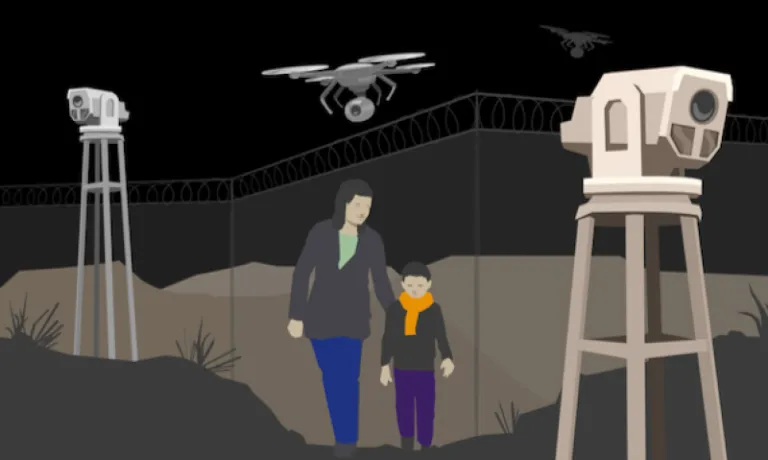
Long Reads

The concept of privacy is essential for Indigenous peoples to exercise their right to autonomy and self-determination, enabling them to better protect their cultural heritage and prevent external control, exploitation, and surveillance of their lands and identities.

On International Migrants Day, we reflect on wins and losses in the fight against violations of migrants’ rights.

In this briefing, we identify the most significant concerns on the UN Countering Terrorist Travel Programme (CTTP), and put forward a range of recommendations to mitigate some of the human rights risks associated with the surveillance of travellers.

AI chatbots are now being used everyday across different industries and recreationally. We consider the growing possibility that these AI tools are the next home of the multi-billion-dollar advertising industry.

EdTech systems are often less about teaching than they are monitoring. Here, we explore the increasing web of surveillance children are experiencing in schools.

Private companies, including Big Tech, are responsible for a large number of digital health tools. While there may be benefits to health, there are also potential threats to your privacy from these initiatives.
In this piece, we outline some of these tools and give some examples of Big Tech involvement in digital health and consider what sort of future a Big Tech dominated vision of digital health might hold for your rights, your autonomy and our society

Expanding beyond GPS ankle tags, the Home Office has since Autumn 2022 been issuing so-called non-fitted devices (NFDs) to migrants who are on immigration bail and who are subject to electronic monitoring conditions. We undertook some technical research into NFDs to investigate the intrusiveness of this surveillance technology.

This piece highlights concerns over the increasing use of data-intensive technologies in educational spaces (EdTech) and examines - among other things - how their unchecked implementation can jeopardize students' rights and education through potential privacy violations, discrimination, and the lack of student input in the adoption of these technologies.

Surveillance databases are on the rise all around us and with them comes a wider array of issues. Here we begin to unpack these concerns and discuss some of the prominent global drivers of this trend.

PI's analysis of the Council of Europe's Guidelines on processing of personal data for voter registration and authentication, which complement a previous set of recommendations outlining the safeguards for the Processing of Personal Data by and for Political Campaigns.